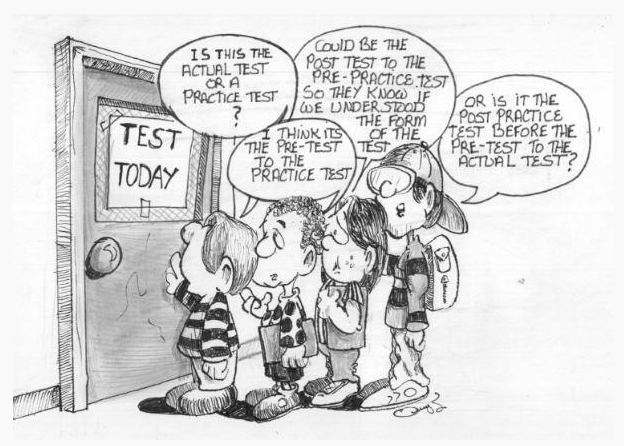Time magazine is about to use its cover to blame teachers for every problem in America’s schools. On Monday, Nov. 3, this cover will be in every supermarket checkout line and newsstand across the country—and it’s already online.

When I saw this today, I felt sick. This Time cover isn’t trying to foster a serious dialogue about solutions our schools need—it’s intentionally creating controversy to sell more copies.
Tell Time‘s editors to apologize for this outrageous attack on America’s teachers.
The millionaires and billionaires sponsoring these attacks on teacher tenure claim they want to get great teachers into the schools that serve high-need kids. It’s a noble goal, but stripping teachers of their protections won’t help.
In fact, this blame-and-shame approach only leads to low morale and high turnover, making it even harder to get great teachers into classrooms. Just today, constitutional scholar Erwin Chemerinsky wrote a fact-based argument 1 that tenure protections help recruit and retain high-quality teachers! In fact, there is a strong correlation between states with strong teacher tenure and high student performance.
And Time‘s cover doesn’t even reflect its own reporting. The Time article itself looks at the wealthy sponsors of these efforts. And while it looks critically at tenure, it also questions the testing industry’s connections to Silicon Valley and the motives of these players.
But rather than use the cover to put the spotlight on the people using their wealth to change education policy, Time‘s editors decided to sensationalize the topic and blame the educators who dedicate their lives to serving students. The cover is particularly disappointing because the articles inside the magazine present a much more balanced view of the issue. But for millions of Americans, all they’ll see is the cover, and a misleading attack on teachers.
There are serious challenges facing our schools—tell Time that blaming teachers won’t solve anything.
When we work together instead of pointing fingers, we know we can help students succeed.
In places like New Haven, Conn., Lawrence, Mass., Los Angeles’ ABC school district and many others, union-district collaboration is leading to real change2.
Instead of pitting students and teachers against each other, these districts are showing how we can build welcoming, engaging schools by working together to give kids the education they deserve. As a result of this collaborative approach, once-struggling schools all over America are turning around.
When we collaborate, we’re able to recruit AND retain high-quality teachers, and reclaim the promise of a high-quality education for every student.
And when we work together, we can also change tenure to make it what it was supposed to be—a fair shake before you are fired, not a job for life, an excuse for administrators not to manage or a cloak for incompetence.
But instead of a real debate, Time is using the cover to sensationalize the issue so it can sell magazines.
Tell Time magazine to apologize for blaming teachers in order to sell magazines.
We need to have a substantive, facts-based conversation about the challenges our schools face and the real solutions that will help educators and kids succeed.
Help us tell Time that blaming teachers isn’t the way to help struggling schools.
In unity,
Randi Weingarten
AFT President
1 “Teacher Tenure: Wrong Target“
2 “Four Solutions to Public School Problems“












